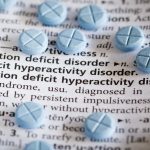
Many teens – especially girls – are affected by body dysmorphic disorder, a condition in which they become obsessed with perceived flaws in their personal appearance, a new study shows. BDD affects about two in every 100 teens (1.9%), according to a report published March 17 in the Journal of the American Academy of Child and Adolescent Psychiatry. The disorder is six times more common in girls than in boys, affecting 1.8% of girls compared to 0.3% of boys, the researchers said. These numbers show it’s important for doctors to keep an eye out for signs of the disorder, said lead researcher Georgina Krebs, an associate professor of psychology with University College London. “Since young people with BDD tend not to spontaneously disclose their symptoms unless directly asked, it is crucial that clinicians utilize BDD screening tools and ask young people directly about appearance concerns,” Krebs said in a university news release. For the study, researchers analyzed data from more than 7,600 kids and teens who participated in the 2017 Mental Health of Children and Young People in England survey. The survey included a question about whether the child is ever concerned with how he or she looks. Those who answered “a little” or “a lot” underwent further screening for BDD. Nearly 70% of young people with BDD also met the diagnostic criteria for at… read on > read on >


















